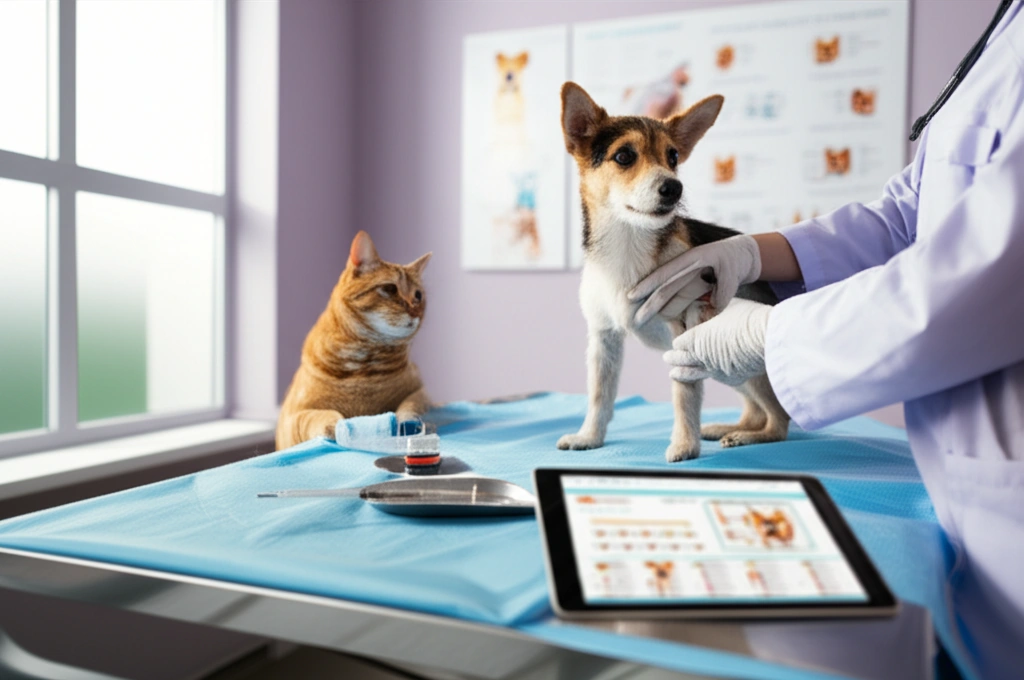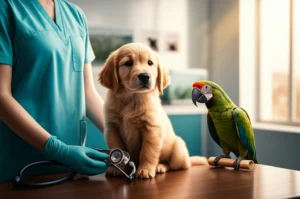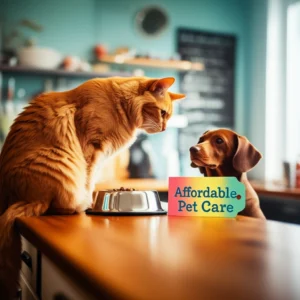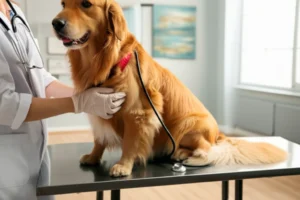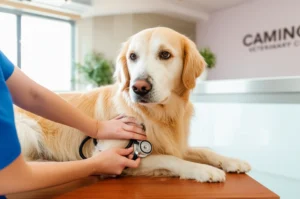Ever rushed your pet to the vet and wondered, “Is this place really the best fit for my furry friend when things get serious?” Maybe you’ve scrolled through a local clinic’s website, trying to figure out if they do things like spays… or vaccines… or emergency surgeries, and realized it’s not always as simple as “yes” or “no.” As a fellow pet parent, I get it—there’s a lot to juggle when it comes to keeping our pets healthy, especially if something unexpected happens.
So, let’s talk about the services offered by animal surgery & vaccinating clinics. What can you actually expect? What’s the difference between a quick vaccine visit and a full-blown surgery day? And what do you need to know to help your pet through it? This isn’t the dry, “here’s a list, bye-bye” kind of article. You’re in for a real, chatty, personal walkthrough—the kind I’d want if I were making these decisions. So, grab a coffee, get comfy, and let’s break it all down—together.
What Happens Behind the Door?
Picture this: You walk into your local animal surgery & vaccinating clinic, your pet in tow. The staff greets you warmly, pets included—because, honestly, the best clinics treat your pets like their own. But what exactly are these places set up to do?
These clinics are like your pet’s “one-stop-shop” for both routine and urgent health needs. That means vaccines, spay and neuter operations, dental work, even emergency surgeries—you name it, they likely handle it. And while every clinic has its own vibe and specialty, there’s a core set of services you’ll find almost everywhere. Let’s go through them one by one, so you know exactly what to ask about and what your options really are.
Spay & Neuter: Sometimes It’s More Than “Just a Snip”
Most clinics offer spay and neuter services—sometimes you’ll spot these advertised as “low-cost spay/neuter,” especially among services offered by affordable pet care at four corners or affordable vet care clermont—but don’t be fooled by the “simple” label. These surgeries are major abdominal procedures, not just a quick trim. Here’s what you should expect:
- Pre-op bloodwork and a health check; after all, anesthesia isn’t something you want to rush into.
- Full anesthesia and careful monitoring throughout the procedure. (You’d want that for yourself, right?)
- Pain management before, during, and after—because your pet deserves to be comfortable.
- Clear discharge instructions and follow-up, so you know what to watch for at home.
Some clinics even offer “fast-track” programs for healthy pets, making the process smoother for everyone. And hey, if you’re on a tight budget, it’s worth asking about low-cost programs near you—just make sure you’re comfortable with who’s handling the surgery.
Vaccines: Your Pet’s Shot at Staying Healthy
Vaccines are pretty much the superheroes of pet care—preventing nasty diseases before they can take hold. Most people know about rabies shots, but your dog or cat’s vaccination schedule is actually a pretty tailored, ongoing process. Here’s a quick rundown:
| Pet | Common Vaccines | How Often? |
|---|---|---|
| Dogs | DHPP (distemper, hepatitis, parvo, parainfluenza), rabies, leptospirosis, bordetella | Varies (yearly, every 3 years, or as needed) |
| Cats | FVRCP (feline herpes, calicivirus, panleukopenia), rabies, feline leukemia | Kitten/initial series, then boosters |
But here’s the thing: not every pet needs every vaccine. Indoor cats, for example, may not need the full outdoor cat lineup. Your vet should help you figure out what’s right for your pet’s lifestyle, age, and risk factors—not just hand you a cookie-cutter list.
Soft Tissue & Emergency Surgeries: When Every Second Counts
Let’s have a real talk for a second. Surgery is scary—for you and your pet. Whether it’s removing a swallowed sock, repairing a nasty wound, or treating an infection, some situations can’t wait till morning. The best clinics are ready for these moments. They’ll have an experienced team, a well-stocked surgical suite, and the equipment to monitor your pet’s vital signs throughout the procedure.
Here’s how a typical emergency surgery visit might go:
- You arrive, sometimes in a total panic, and the triage team checks your pet’s condition.
- The vet walks you through the options, risks, and likely outcomes. (Listen close—it’s okay to ask for clarification.)
- Pre-anesthesia testing and IV fluids get your pet ready.
- Monitoring during and after surgery is standard—think heart rate, oxygen, even temperature.
- Discharge instructions are explained, maybe with a handout for when your brain’s still spinning.
I’ve been there—sitting on the clinic floor, waiting, hoping, maybe crying. It’s a lot. But knowing what to expect, and that you’re in good hands, can make it a little easier.
Dental Care: Because Bad Breath Isn’t Just a Nuisance
Dental health might be the most underrated part of pet care. Seriously, bad teeth can cause heart, kidney, and liver problems—it’s not just about doggy breath. Many clinics offer dental cleanings, extractions, and even digital dental X-rays, so they can spot issues hiding below the gumline.
Dental day usually involves anesthesia (so your pet isn’t flinching at the toothbrush), a full mouth exam, and cleaning or extractions if needed. Sometimes, what starts as a simple cleaning turns into something bigger—like removing a fractured tooth or correcting a deep infection. The good news? Most pets bounce back quickly, and you’ll get tips for keeping their teeth clean at home.
Diagnostics: Finding the Story Behind the Symptoms
Ever wished you could just scan your pet’s head and get a diagnosis? Veterinary diagnostics—bloodwork, X-rays, ultrasounds, fecal tests—are the next best thing. They help vets piece together what’s going on, especially when the symptoms are vague or scary.
- In-house bloodwork can flag kidney issues, diabetes, infections, and more, sometimes in just minutes.
- X-rays help spot swallowed objects, broken bones, or lung issues.
- Ultrasound is amazing for getting a closer look at organs, especially if there’s something funky in the belly.
- Fecal and heartworm/tick-borne disease tests pick up parasites before they cause big trouble.
If your clinic offers these in-house, you’ll usually get results faster—no waiting days for an outside lab. That can mean faster treatment and, especially with emergencies, a quicker chance at recovery.
Specialty Services: When You Need a Second Opinion
Sometimes, your primary vet will suggest a referral. Maybe it’s for a cardiology consult to check out a heart murmur, or a radiologist to review an ultrasound. It’s not a knock on your clinic—it just means your pet’s getting the absolute best care from someone who specializes in that area.
Microchipping fits here, too. It’s quick, relatively painless, and can be the difference between a lost pet coming home and a lost pet staying lost. Most clinics offer this as a walk-in service or alongside other procedures.
Preventive Care: Stopping Problems Before They Start
Think of preventive care like your pet’s “wellness insurance policy.” That means regular checkups, parasite prevention (heartworm, fleas, ticks, intestinal worms), and even nutrition counseling. These visits are your chance to catch little problems before they turn into big (and expensive) ones.
Some clinics offer wellness plans, which spread out the cost of routine care into monthly payments. It’s a smart move if you want to budget for vaccines, dental cleanings, and checkups throughout the year. If you’re looking for affordable pet care stanwood or affordable vet care clermont options, it’s worth asking about these types of packages—sometimes they even come with perks like discounts on other services or priority scheduling.
What About Cost? The Real-World Reality
Let’s not sugarcoat it: pet care can be expensive, and surgery or emergency visits especially so. Costs vary widely depending on where you live, the clinic’s standards, and your pet’s needs. For example, a routine spay/neuter might run you a couple hundred dollars in some areas, while emergency surgery to remove a foreign object can climb into the thousands.
But there are ways to manage the costs without compromising your pet’s safety:
- Look for wellness plans or bundled services, which can spread out the cost.
- Ask about payment options, like CareCredit or in-house payment plans.
- If you’re on a tight budget, clinics like services offered by affordable pet care at four corners or affordable vet care clermont sometimes offer lower-cost basics—just make sure you know what’s included and if there are trade-offs.
And here’s a real-talk moment: if a price seems too good to be true, ask questions. Find out about the surgeon’s experience, what kind of monitoring they offer, and what’s covered (and what isn’t). Sometimes, budget-friendly means fewer frills, but it should never mean cutting corners on safety.
How to Find the Right Fit: Questions to Ask (and Trust Your Gut)
So, how do you know if a clinic is right for you and your pet? Here’s a quick checklist—questions I always suggest when you’re wondering, “Is this the place?”
- Who performs surgeries? Are they licensed veterinarians with surgery experience?
- What kind of monitoring is used during anesthesia and surgery? (ECG, pulse oximeter, blood pressure, temperature—all ideally.)
- Is pain management provided, before, during, and after procedures?
- What’s the follow-up process? Who do you call if there’s an issue at 2 a.m.?
- Are costs clearly explained upfront? No one likes surprise bills.
And honestly? Trust your gut. If the staff is impatient, rushed, or not taking time to answer your questions, it’s okay to walk away. You want a place that feels like a partner in your pet’s health, not just a service provider.
My Personal Close: When Things Go Right
Here’s a quick story: My own dog once swallowed a squeaky toy (classic, right?). I rushed him in, terrified, and the team at our local clinic was calm, clear, and kind. They explained the surgery options, kept me updated, and my guy bounded out the next day, squeaky-toy-free and wagging. Honestly? That experience—feeling supported and heard—mattered as much as the surgery itself.
That’s what good clinics do. They treat the human as much as the pet, and they turn a stressful moment into something you can handle together. That’s what you deserve, too.
Now What? Your Next Steps
If you’re reading this, you’re already doing something important—getting informed, asking questions, and looking out for your pet’s best interests. That’s huge. Here’s what I’d suggest next:
- If your pet hasn’t been in recently, set up a routine exam. It’s a great way to meet the clinic team, ask questions, and check out the vibe.
- Chat with your vet about any concerns or upcoming procedures, big or small. There’s no such thing as a silly question.
- If you’re juggling budgets, ask about wellness plans or payment options. Don’t be shy—everyone’s doing their best out here.
- If you’re considering a new clinic, schedule a visit or call ahead with a few of the questions above. You’ll get a feel for their style and values.
And hey, share your experiences! I’ve learned so much from fellow pet parents—what clinic worked for you, what surprised you, what made you breathe a little easier. If you have stories or questions, people out there want to hear them (I know I do!).
Final Thoughts: You’ve Got This
At the end of the day, the services offered by animal surgery & vaccinating clinics are more than just lists on a website. They’re the safety net for our pets’ health, the team who shows up when things get tough, and the folks who help us make sense of the “what ifs.”
It’s a lot to take in, especially when money is tight and the internet’s advice feels overwhelming. But remember: you’re not alone. There are clinics—and communities—that want to help, that understand, that care as much as you do.
So, here’s to your pet’s health, your peace of mind, and the people who walk this road with you—one paw at a time.

